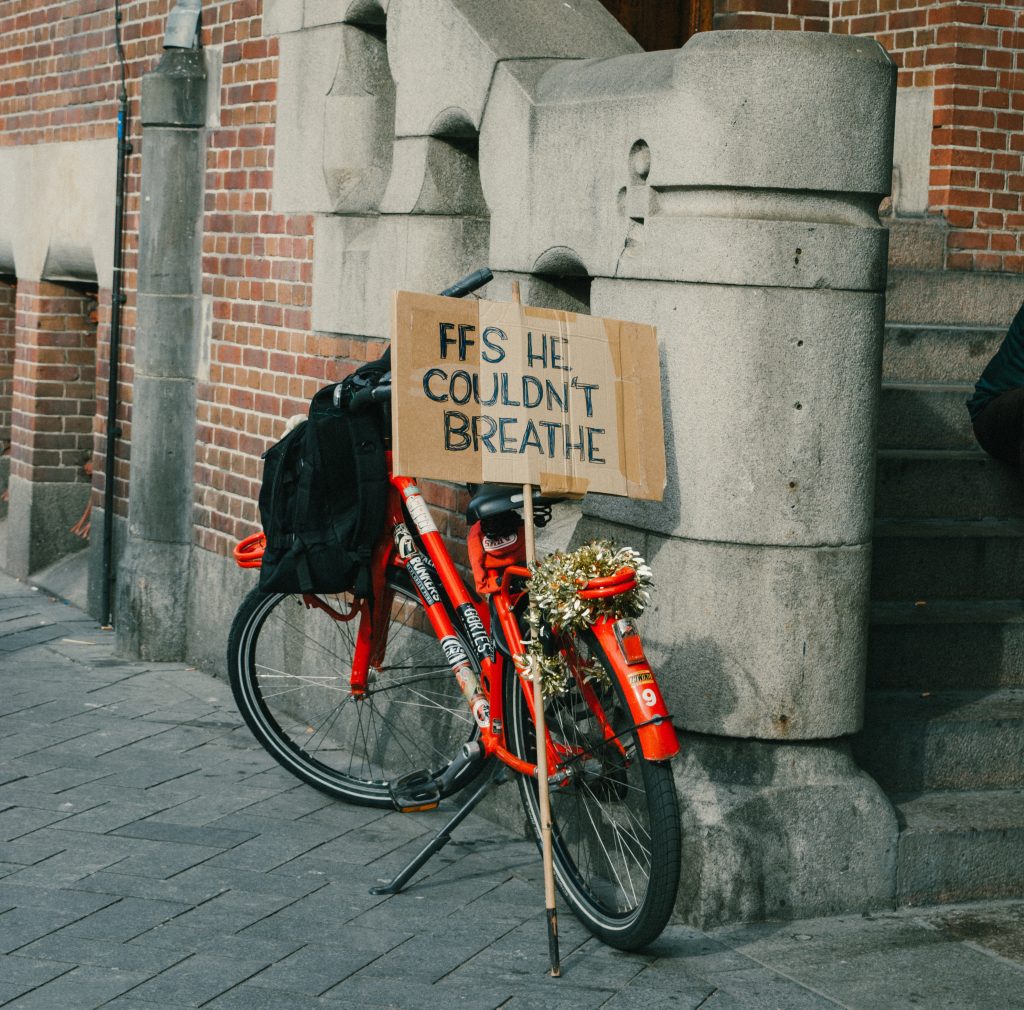
By now everyone is aware of the recent international uprisings against police brutality and systemic oppression. If you are somehow not aware, see Mapping Police Violence for an overview of violent police actions against primarily Black people. The data, though not yet updated for 2020, shows that police violence is largely unconnected to the prevalence of crime in a specific place. The reason for that violence goes much deeper than specific incidents to which police respond. Black people (and their allies) are rising up now to confront a long history of violence.
There have been some social media rumblings about this moment as a distraction — from pandemic lockdown, from restarting the economy, from addressing climate change. But we must not be distracted from how all of these things are connected. In this moment we must attend to the suffering of Black folks. We must attend to the ways that their communities are sites of both the quick and aggressive violence of the state, as in police brutality, and the slow violence of poverty and climate change — violence that is “neither spectacular nor instantaneous, but rather incremental and accretive, its calamitous repercussions playing out across a range of temporal scales” (Rob Nixon, Slow Violence and the Environmentalism of the Poor).
This is a moment to make these connections and acknowledge and expunge that which feeds a violent system. The following are a collection of articles which connect racial injustice to the environment and environmental movements. Each of these articles demonstrates that necessity of approaching the problem of the environment with a broader, more inclusive vision of justice.
3 Ways Racial and Environmental Justice Are Connected, as Explained by the Vision for Black Lives
This article raises the facts that Black people have less access to renewable energy solutions such as solar panels and wind turbines, and are disproportionately affected by the waste and pollution produced by fossil fuels. The article also calls for more Black representation in politics, arguing that automatic voter registration is a way to increase political engagement at all levels of government.
The Climate Movement’s Silence
If you have ever attended a meeting for an environmental group and found yourself sitting amidst a crowd of white faces, it may be because mainstream environmentalism has long refused the connections between racial and environmental justice. This article describes a problematic segment of environmental movements — people whom the article labels “Climate Chads” — whose voices drown out those of Black environmentalists and shape movements toward whiteness. Environmental movements must address with the fact that addressing climate change means reckoning with the ways that movements shut out Black participation.
Responding to protests, green groups reckon with a racist past
This article details how environmental groups emerged from a foundation of racism — ideas of conservation that primarily functioned for white leisure in nature, or to preserve nature for the use of white people only. Early environmentalists were often overtly racist, espousing eugenics and sterilization for Black people (as well as Indigenous people and non-Black People of Colour) as a solution to overpopulation. While the article does highlight some statements made by environmental groups indicating that the focus is moving from conservation to an environmental justice which includes racial justice, the fact remains that the environmental movement’s racist past must be addressed and atoned for.
I’m a Black climate expert. Racism derails our efforts to save the planet
In this article by marine biologist and policy advisor Ayana Elizabeth Johnson, she quotes Toni Morrison who says that “The very serious function of racism … is distraction. It keeps you from doing your work. It keeps you explaining, over and over again, your reason for being.” Racism keeps Johnson and others from attending to the work of environmental stewardship and research, from giving climate change their full attention. Johnson also cites a statistic indicating that both Black and Latinx people are significantly more concerned about climate change than white people are, and imagines the power of a climate movement that includes those voices and that energy. Johnson calls for white environmentalists to become actively anti-racist in order to include Black people in the climate fight.
